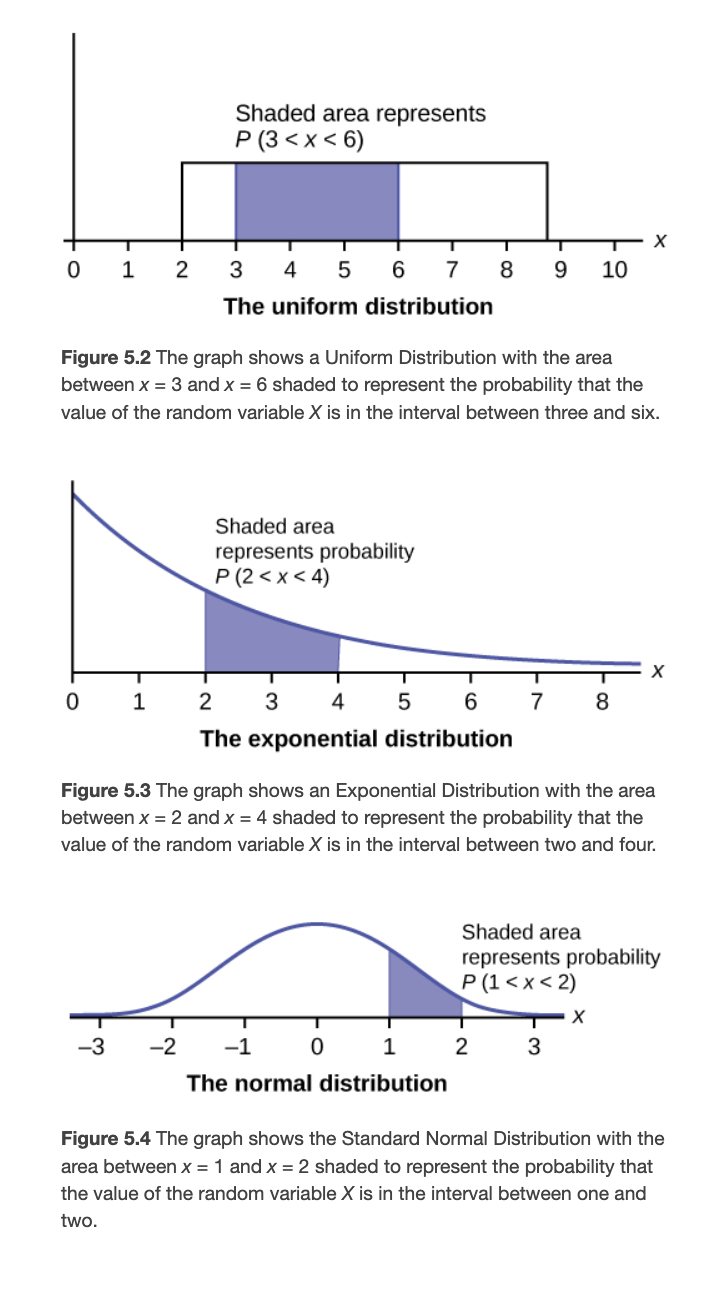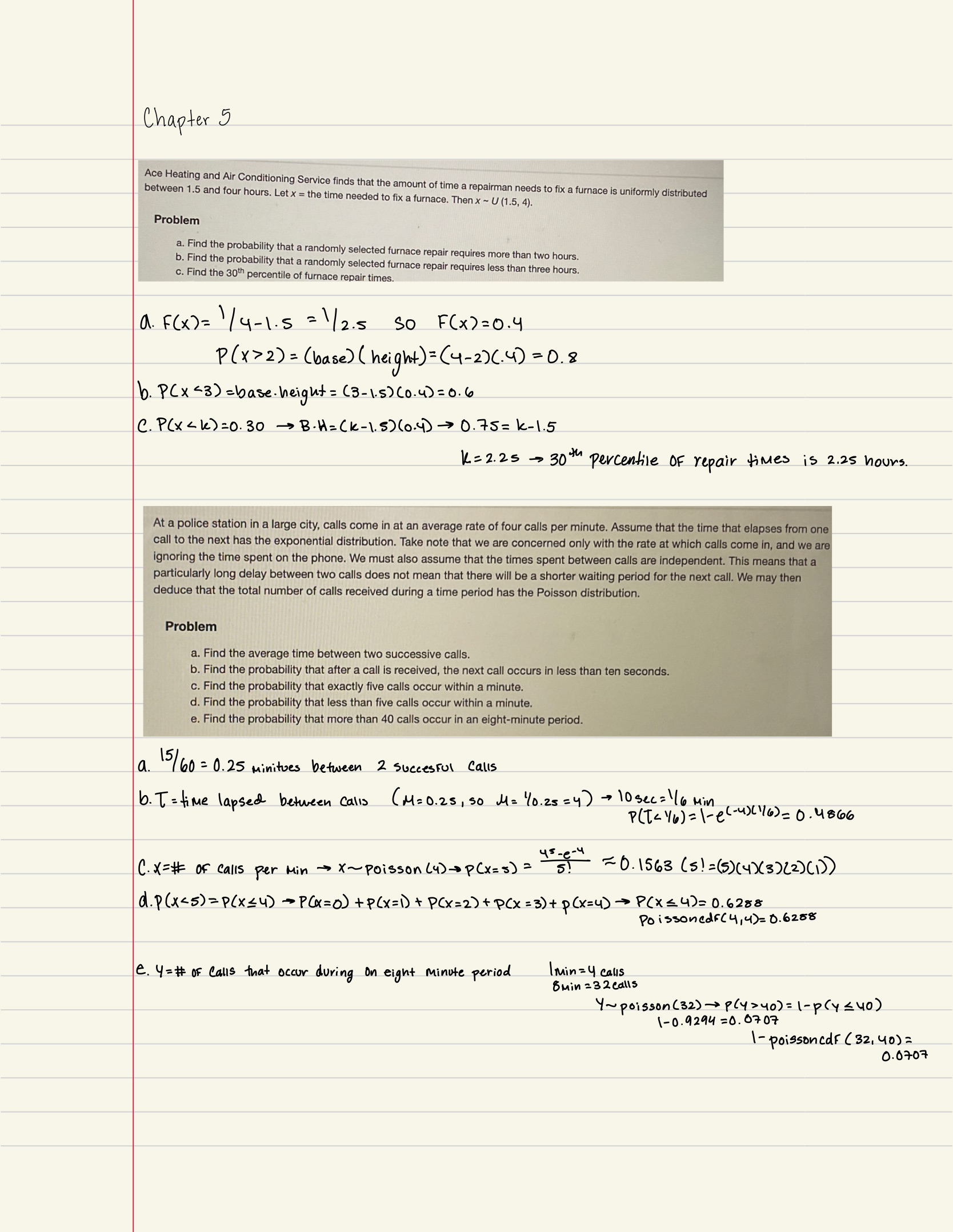Chapter 5: Continuous Random Variables
Introduction
Properties of Continuous Probability Distributions
Probability density function: a statistical measure used to gauge the likely outcome of a discrete value
f(x) ≥ 0
The total area under the curve f(x) is one.

Cumulative distribution function: a function whose value is the probability that a corresponding continuous random variable has a value less than or equal to the argument of the function.
- P(X ≤ x) = (x−a)/(b−a)

5.1 Continuous Probability Functions
- Continuous probability distributions: PROBABILITY = AREA
- Continuous probability density function: gives the relative likelihood of any outcome in a continuum occurring
- f(x)=1 / b−a for a ≤ x ≤ b
5.2 The Uniform Distribution
- The uniform distribution: is a continuous probability distribution and is concerned with events that are equally likely to occur.
- Uniform Mean: 𝜇=(a+b) / 2
- Uniform Standard deviation: 𝜎=√((b−a)^2 / 12)
- Uniform pdf: f(x)=1 / b−a for a ≤ x ≤ b
- Uniform cdf: P(X ≤ x) = x−a / b−a
- X = a real number between a and b (in some instances, X can take on the values a and b). a = smallest X; b = largest X
- Probability density function: f(x)=(1 / b−a) for a ≤ X ≤ b
- Area to the Left of x**:** P(X < x) = (x – a)(1 / b−a)
- Area to the Right of x**:** P(X > x) = (b – x)(1 / b−a)
- Area Between c and d**:** P(c < x < d) = (base)(height) = (d – c)(1 / b−a)
5.3 The Exponential Distribution
- Memoryless property: the independence of events or, more specifically, the independence of event-to-event times or P (X > r + t | X > r) = P (X > t) for all r ≥ 0 and t ≥ 0
- Exponential Distribution: X ~ Exp(m) where m = the decay parameter
- decay parameter: m = 1 / μ and we write X ∼ Exp(m) where x ≥ 0 and m > 0
- exponential pdf: f(x) = me^(–mx) where x ≥ 0 and m > 0
- exponential cdf: P(X ≤ x) = 1 – e^(–mx)
- exponential mean: µ = 1/m
- exponential standard deviation: σ = µ
- exponential percentile k: k = ln(1−AreaToTℎeLeftOfk) / (−m)
- Additionally
- P(X > x) = e^(–mx)
- P(a < X < b) = e^(–ma) – e^(–mb)
- Poisson probability: P(X=k)=𝜆^k e^−k / k! P(X=k) with mean λ
- k**!** = k*(k-1)*(k-2)*(k-3)*…3*2*1
Examples
